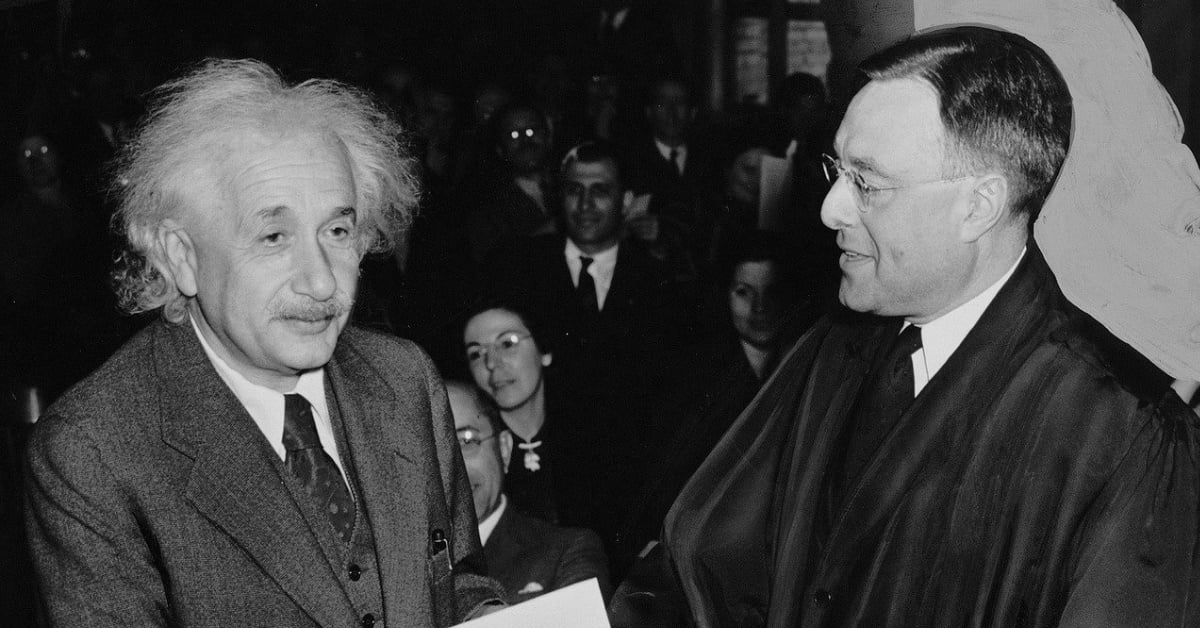This statement, attributed to the great physicist, can often be found on the Internet. We checked to see if Albert Einstein said something similar.
Numerous online collections confirm that it was the author of the special theory of relativity who uttered the phrase in question. aphorisms, and in some Of these, the quote begins with the word “meaningless.” The quote is also popular in social networks. Linked to Einstein, it can also be found on the newspaper’s websites. "Moskovsky Komsomolets", Association of Russian Banks, Rospatent, Yerevan State University and in many other sources. The statement is also known in the West - in particular, it is present on the official pages of various American universities And colleges. In the English version, the first word usually means insanity - “madness”, “recklessness”.
However, even the most scrupulous study of Albert Einstein’s works published during his lifetime does not bring any results - apparently, the scientist did not write or say anything similar. Published by Princeton University (of which he was an honorary doctor) collection of quotes physics this statement is placed in the section "Incorrectly attributed to Einstein."
Where did the catchphrase come from then and why is it attributed specifically to Einstein? The earliest close enough match to the quote is found in the Knoxville News Sentinel newspaper (Tennessee, USA) dated October 11, 1981 - in an article devoted to a meeting of members of the Al-Anon organization (helping families of Alcoholics Anonymous). The meeting touched upon standard "12 steps"what an alcoholic needs to do to recover from addiction. The second step is: “We have come to believe that only a power greater than ourselves can restore us to sanity.” In response, one of the meeting participants noted that not all women alcoholics agree with the formulation “restore sanity.” “In fact, one of them is adamant that she never reached the point of insanity. But another notes: “Insanity is doing the same thing over and over again and expecting different results,” he said.
Perhaps the American organization Narcotics Anonymous read an article on a topic close to theirs. At least it's out next month brochure this organization, where the phrase “Insanity is repeating the same mistakes and expecting different results” was present.
And in 1983, the phrase first appeared in a popular publication - in the bestseller "Sudden Death" American writer, feminist and lesbian rights activist Rita Mae Brown, where she was credited as one of the heroines. After this, the statement spread to quotes, in which usually mentioned writer's name. However, gradually the maxim began to acquire new authors - for example, in 1988 its attributed Church of Religious Science activist Peggy Bassett, and by 1990, Albert Einstein finally became the “author” of the catchphrase. In particular, it was his mentioned Travis County (Texas) District Attorney Ronnie Earl spoke in his speech. And already in the first half of the 90s the attribution of the phrase to Einstein became ubiquitous.
Why Albert Einstein? It is difficult to give a definite answer to this question. There is another one attributed to Einstein quote with a similar idea: “The big challenges we face cannot be solved at the same level of thinking that was used when we created them.” Perhaps people confused two phrases or remembered a more iconic statement, attributed to Einstein: “There are only two infinite things: the Universe and human stupidity. Although I’m not sure about the Universe.” One way or another, Einstein definitely did not say the quote we examined.
Incorrect quote attribution
Read on topic:
1. Insanity Is Doing the Same Thing Over and Over Again and Expecting Different Results
2. The Ultimate Quotable Einstein
If you find a spelling or grammatical error, please let us know by highlighting the error text and clicking Ctrl+Enter.






